Kingdom Of The Planet Of The Apes Is The First Movie In The Franchise I've Ever Seen, And It's Actually A Great Place To Start
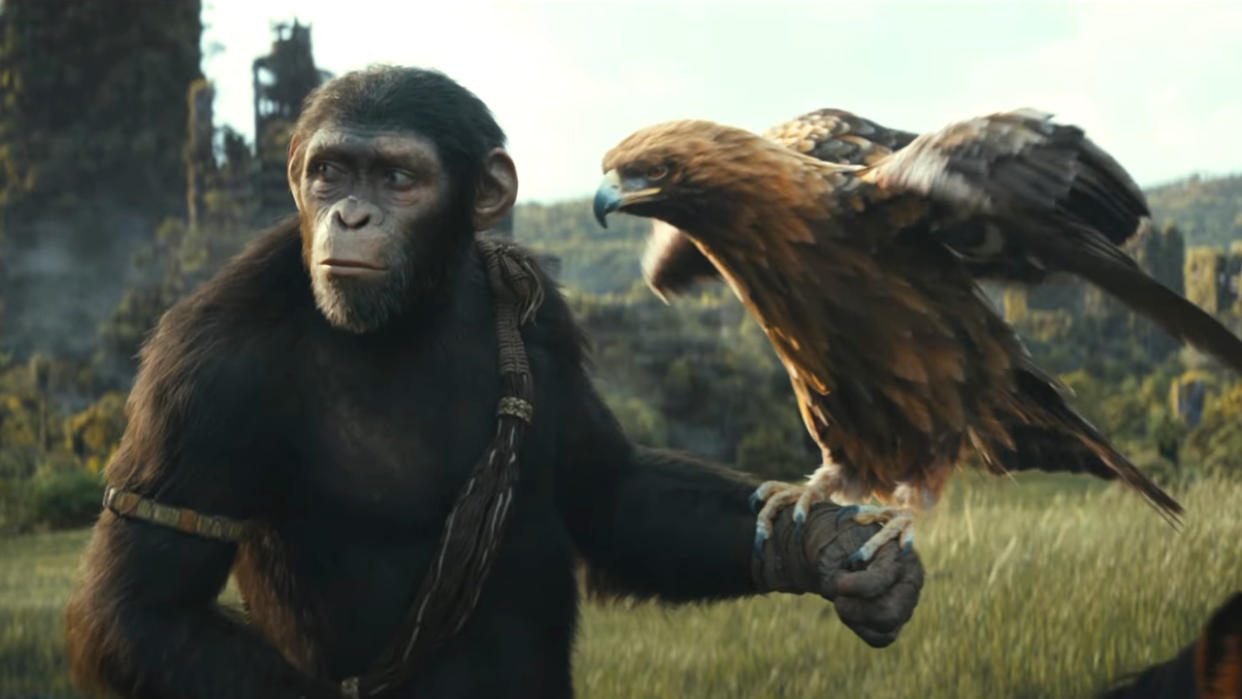
The following contains MINOR SPOILERS for Kingdom of the Planet of the Apes.
The Planet of the Apes film franchise has been around since 1968. I have been around only slightly less time than that and have been a fan of movies for as long as I was aware movies were a thing. And yet for some reason, I’ve never seen any of the multitude of Planet of the Apes movies, including the most recent, very popular trilogy.
Planet of the Apes may have won an Oscar for its makeup effects in the 1960s, but as a kid, I think I found it all a little silly-looking. While the most recent trilogy certainly didn’t look like the older films, because I wasn't a Planet of the Apes fan, it was just never a high priority. The movies have been on the “to watch,” list, but that list only gets longer regardless of how many movies I watch.
I considered trying to watch all the Planet of the Apes movies in order before Kingdom of the Planet of the Apes came out, but I ran out of time. So regardless of never having seen any of the previous films, and not knowing the best Planet of the Apes movies from the worst, I found myself in a dark theater this week to watch the brand-new entry in the franchise. Not only did I agree with our own Kingdom of the Planet of the Apes review and think it was a pretty good movie, but it was actually a great place to start for somebody who had avoided the franchise so far.
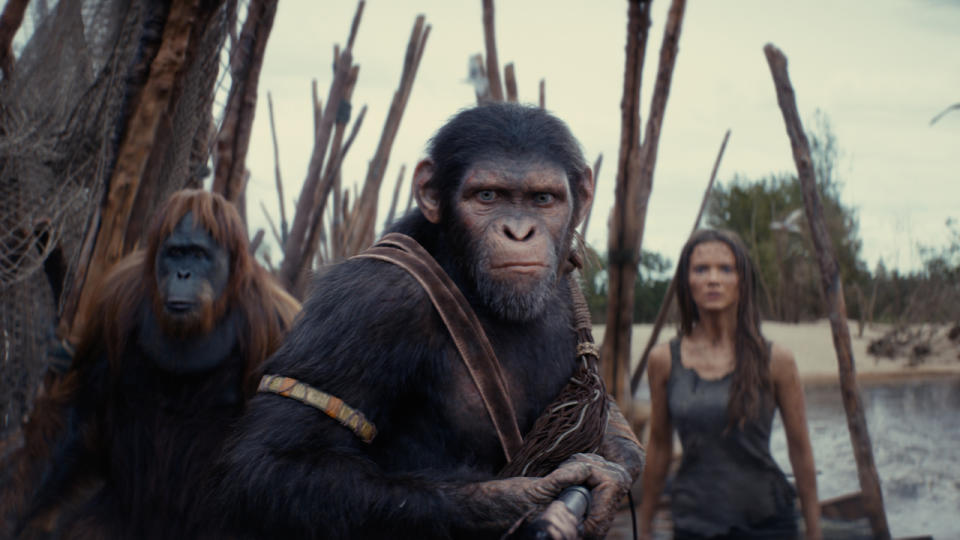
Kingdom Of The Planet Of The Apes Doesn’t Require Any Previous Franchise Knowledge
While I haven’t seen any Planet of the Apes movies, that’s not to say I don’t know anything about them. I’m certainly aware of the big twist at the end of the original movie and the excellent Spaceballs joke that came from it, and I have a general understanding of what happened in the Rise trilogy. I know the name Caesar and that he was the primary ape character in the trilogy.
But that’s about the extent of what I know. Kingdom of the Planet Apes takes place in the same continuity as the Rise trilogy, and possibly the same continuity of all the films since the Planet of the Apes timeline isn't exactly clear. But if you’re even worse off than me and don't know anything about the previous trilogy, that's ok. The movie opens with a bit of on-screen text and a brief scene that tells you literally everything you need to know going into the events of Kingdom.
Kingdom of the Planet of the Apes is set so far apart from any previous film in the franchise that none of them can have any direct impact on the story. The specifics of the previous movies don’t matter to the audience because they don’t matter to the characters. If you can accept the premise that apes are the dominant species on the planet, there’s really nothing else that any other movie is going to tell you that’s important.
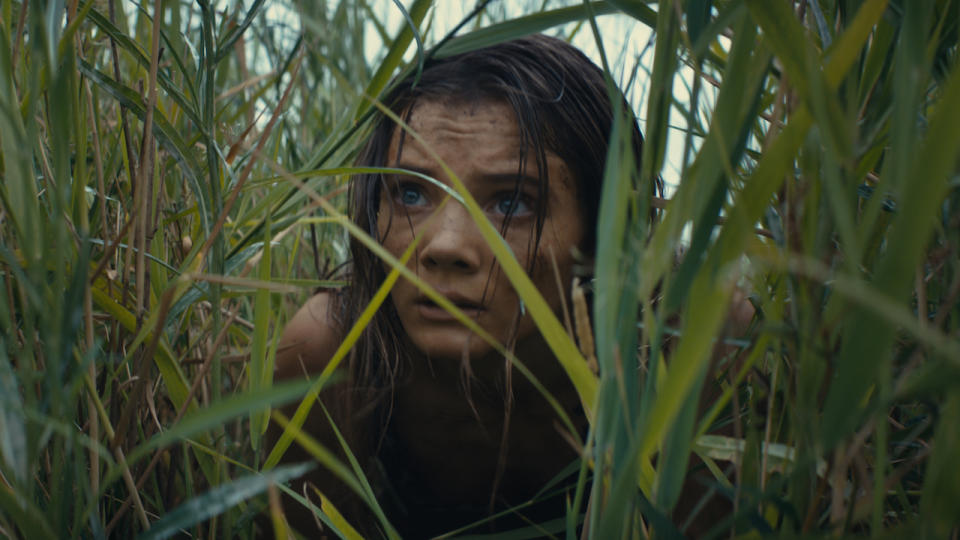
The Previous Trilogy Feels Like Lore To Flesh Out The World
The events of the previous trilogy do pop up, but not in any way that requires the viewer to have direct knowledge of what actually happened. The name Caesar is first spoken by one of the warrior apes under Proximus Caesar. Our protagonist ape, Noa, isn’t even familiar with the name or what it means when he first hears it. It’s been generations since whatever happened happened, and Noa's clan doesn't concern themselves with such things.
Still, the little details matter. Maybe they refer to specific events in the last three movies, I have no idea. Whether they do or not, what they feel like without that knowledge are details that make the world of the intelligent apes feel more real and lived in. A reference to Caesar in Kingdom of the Planet of the Apes feels like the first time somebody mentioned The High Table in a John Wick movie. You understand what it is and what it means in the world without needing the details, but it helps you understand how the pieces fit together.
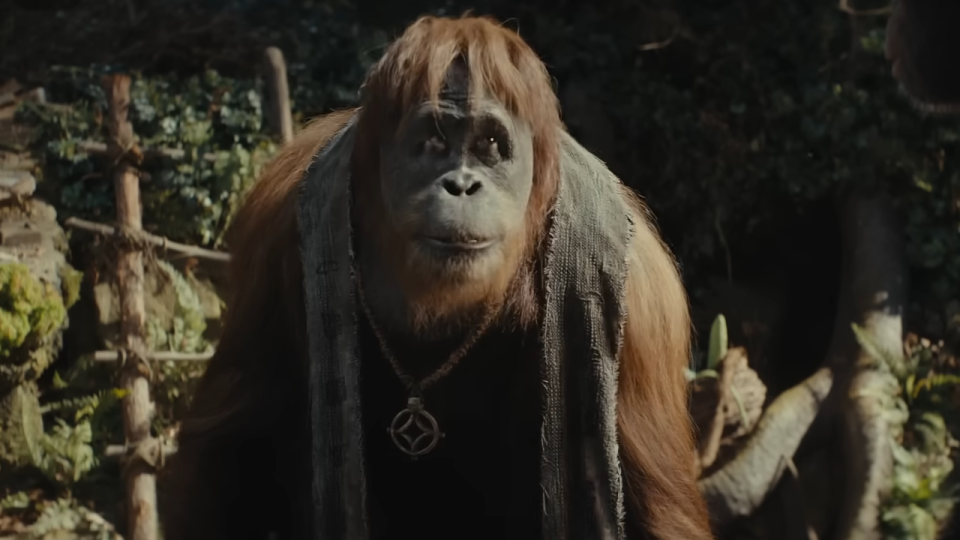
Kingdom Of The Planet Of The Apes Might Be Better Without Previous Knowledge
What makes it even more interesting is that if you come into the movie without previous knowledge, I think it might be better. Kingdom of the Planet of The Apes presents two different versions of Caesar as interpreted by two different groups of characters. Proximus sees Caesar as a warlike figure, he uses the manta “Apes together strong” as a call to unify all apes, by force if necessary, under one leader. Raka, however, says Caesar was more peaceful and compassionate, and wanted to prevent violence between apes.
Which of these views of Caesar is the accurate one? I don’t know. With generations having passed, it’s possible either of these interpretations could be right or could be wrong. Or maybe Caesar fell someplace in between and they are actually both wrong to some extent.
I like this idea. So much time has passed, and record-keeping was seemingly never a priority, that history is open to interpretation. Nobody is entirely sure what happened before. Some people are learning about these details for the first time, but what the truth is isn’t important. What matters in Kingdom of the Planet of the Apes is simply what certain characters believe and how that impacts the decisions they make.
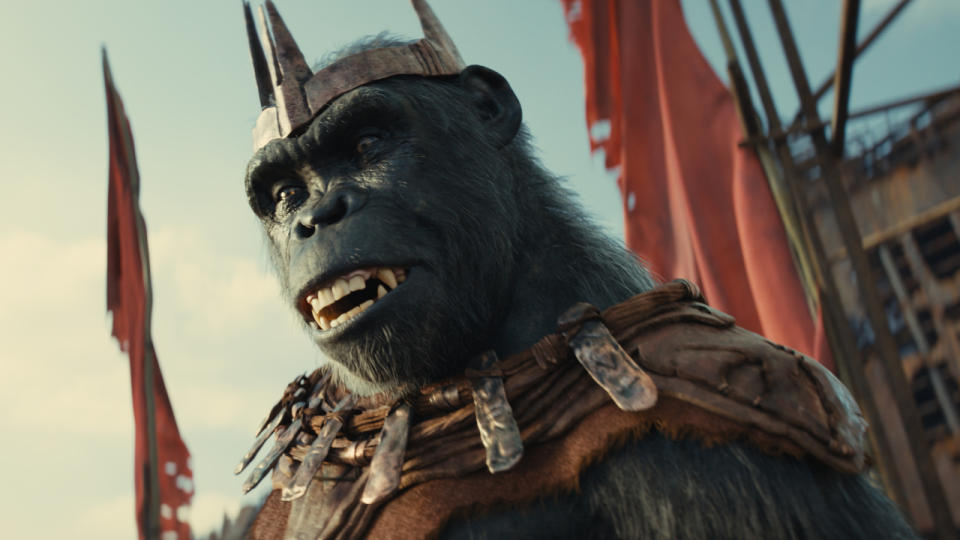
I’m More Interested Than Ever To Watch The Previous Apes Trilogy, And Maybe The Rest Of The Franchise
I have to admit, though, after seeing Kingdom of the Planet of the Apes, I’ve become more curious than I was before about the previous films. From my perspective, it’s essentially the “prequel trilogy” for Kingdom of the Planet of the Apes. And I do want to know more about Caesar. Just what sort of character was he, really? Which of these differing views of him was right? I’m much more interested in that question now.
And who knows, maybe after I watch the Rise trilogy, I’ll want to go back and watch the original Apes movies too. They may be dated in a lot of ways, but they are generally well-regarded, and there must be something there if the franchise has survived this long. Except for the Tim Burton-directed Apes remake, I hear that one is pretty terrible.